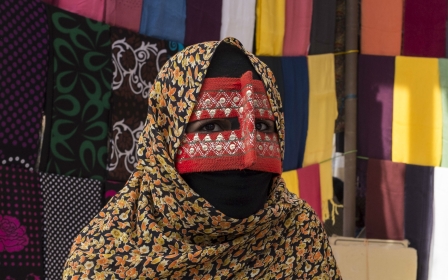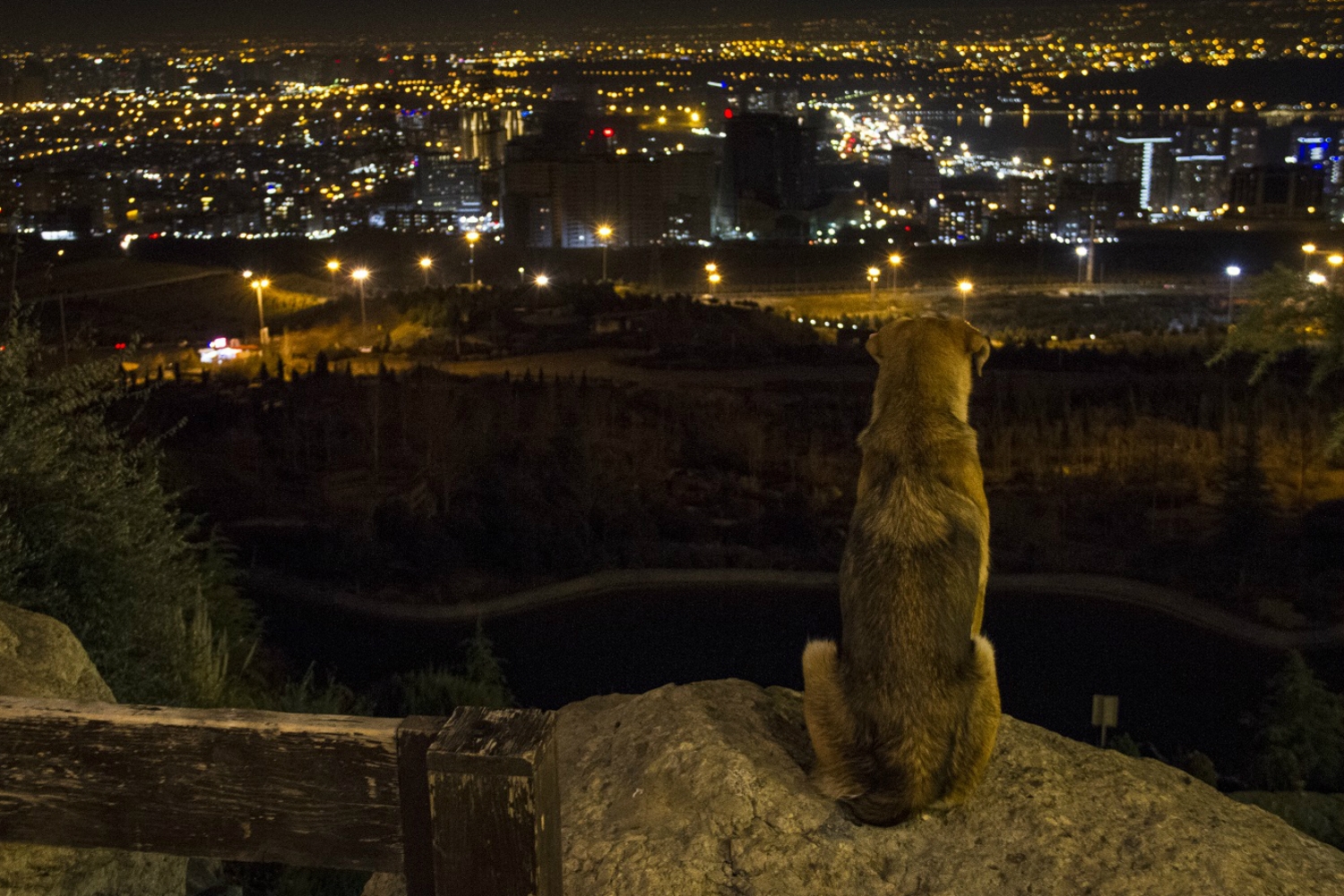
In pictures: The not-so-rich kids of Tehran
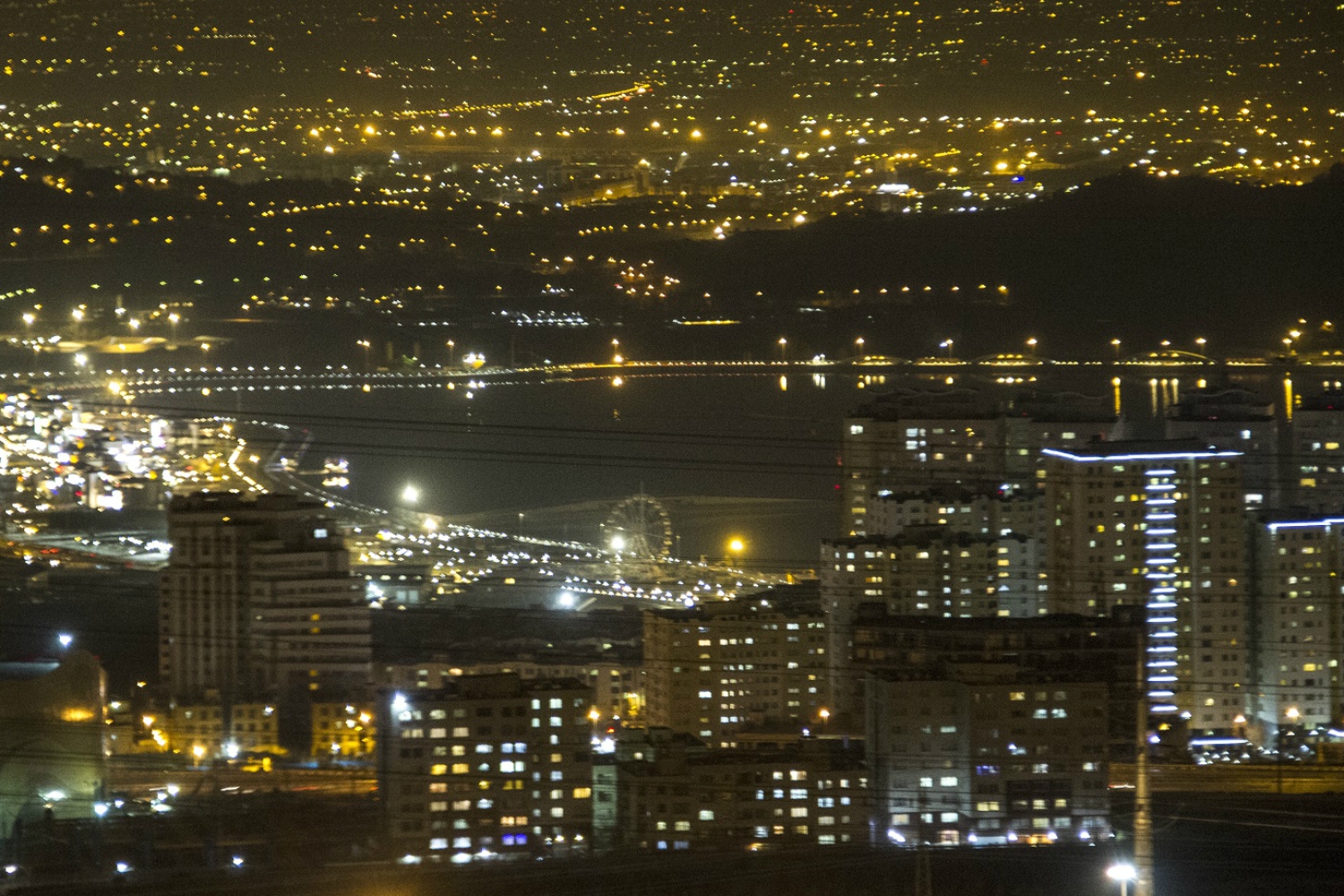
The gentrified neighbourhoods of Tehran – such as here in the west – are too expensive for many Iranian teenagers and twenty-somethings, who are unable to afford the high prices in cafes, cinemas and art centres. (MEE)
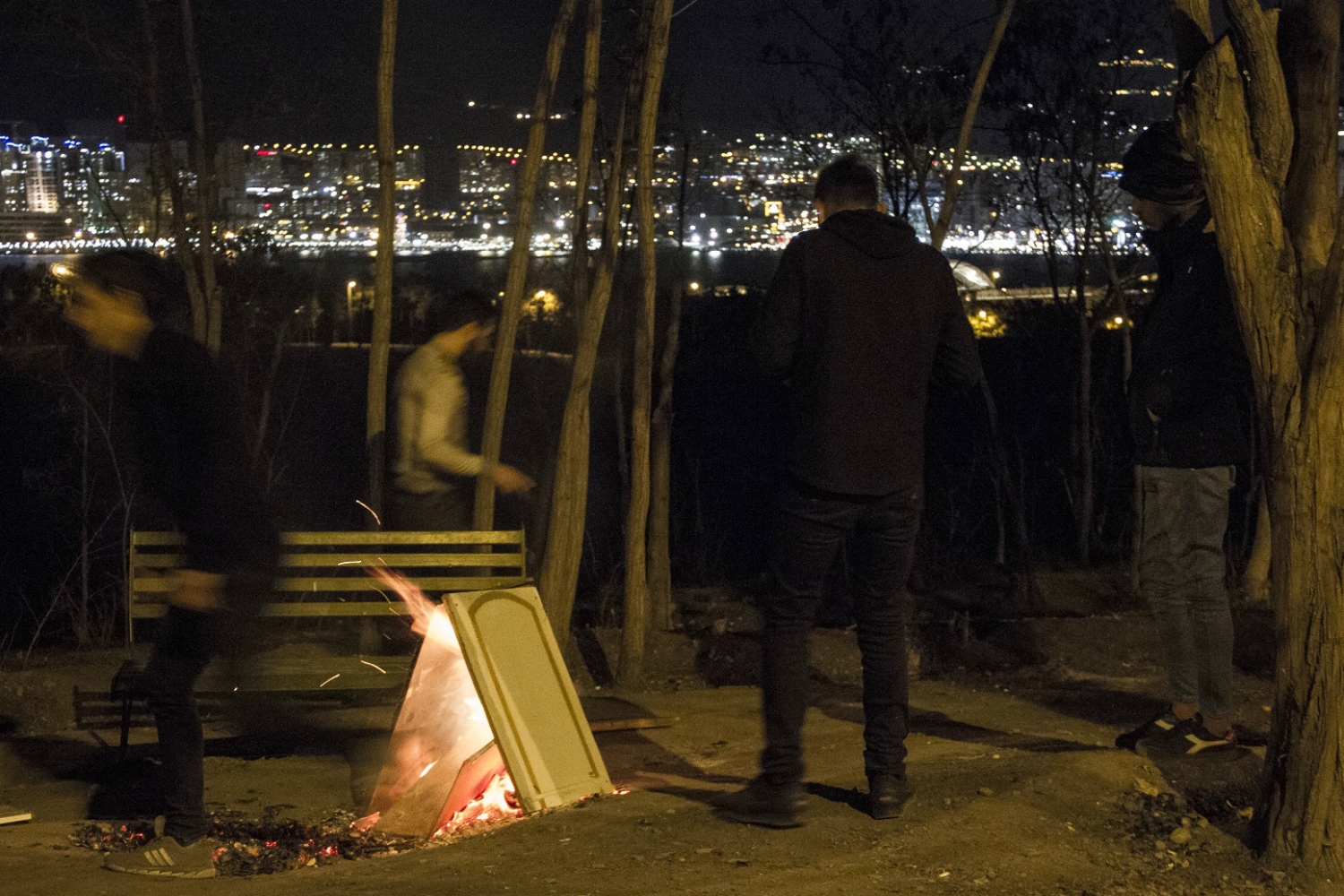
Instead they meet up in parks. One popular hangout is Chitgar forest, once outside the city but now on its north-western outskirts. A group of boys who come here every weekend say it’s the cheapest entertainment there is, especially as the only security patrols are forest rangers. One says: “If they catch you drinking booze, they will ask: ‘Is it gasoline?’ And you say: ‘Yes’. They pretend that they don’t know what it is, empty the bottle on the fire, and leave.” (MEE)
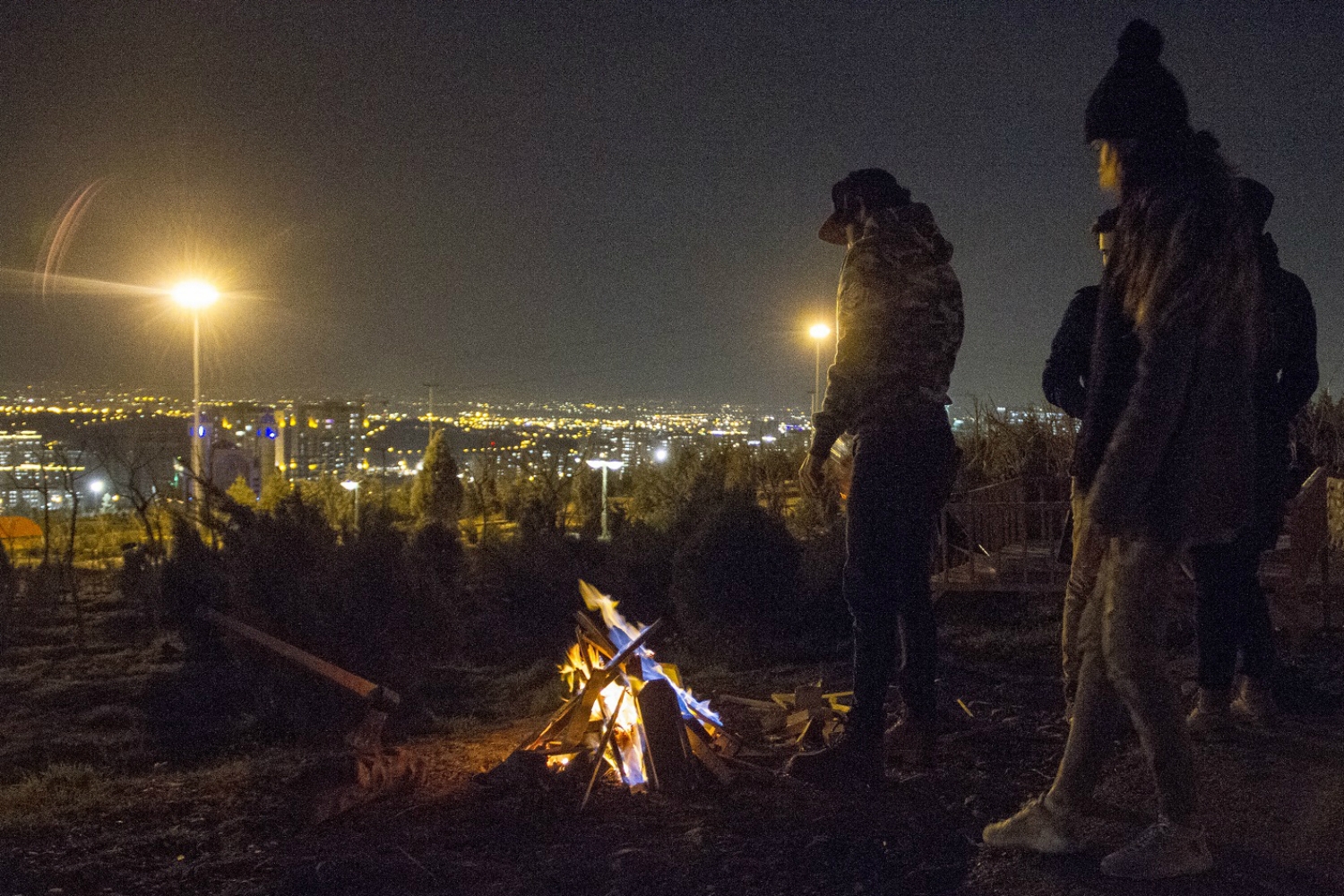
In the north-west in Abshar, at the foot of the mountains, small groups of young men and women hang around campfires near the Tehran Waterfall Park. (MEE)
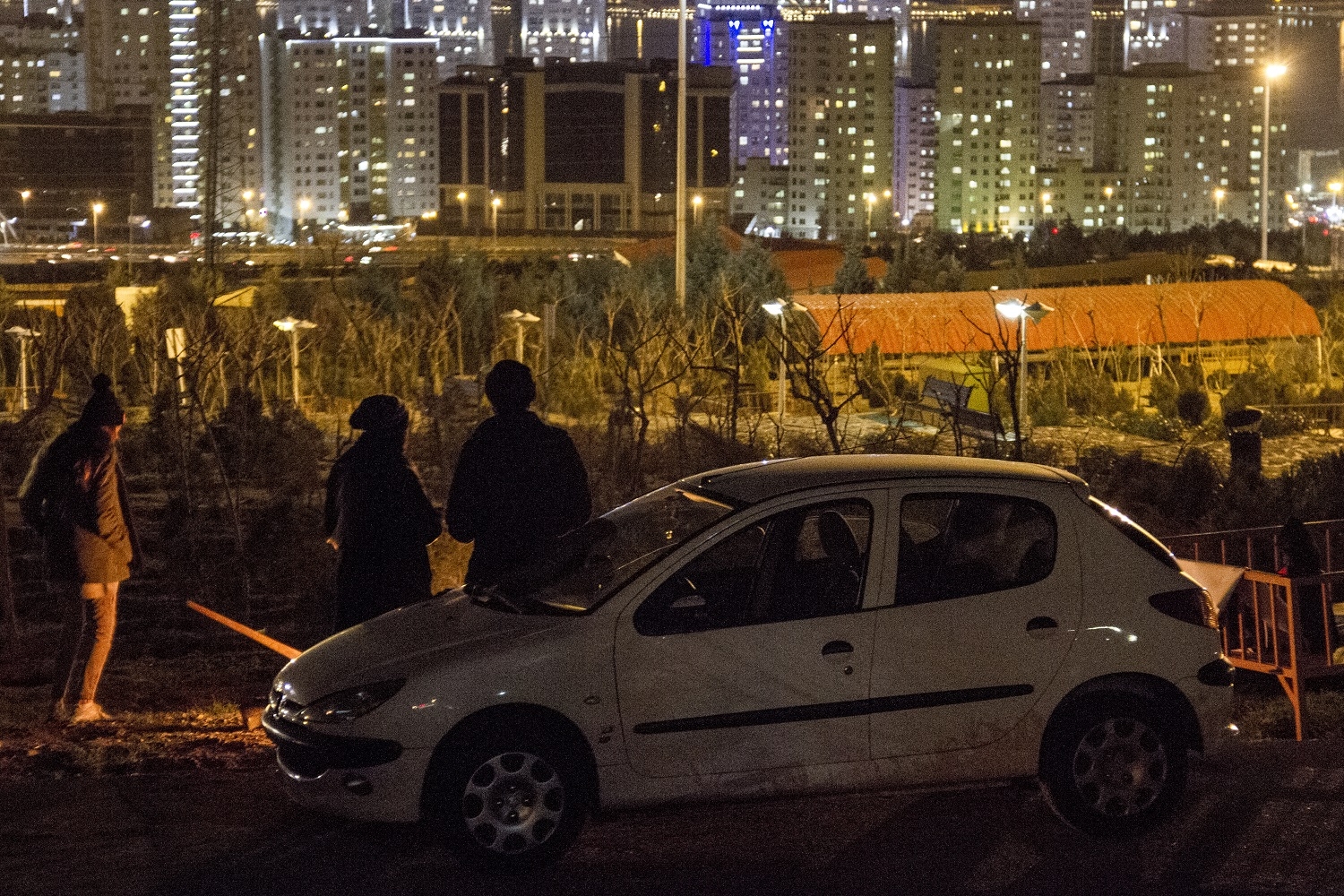
Most of those in this crowd are in their early twenties. One has parked his car close to the fire, rolled the windows down and turned the music up high. A girl asks for a song by Iranian rapper Amir Tataloo, then sings a line out loud: “Life is a treadmill, running without arriving.” (MEE)
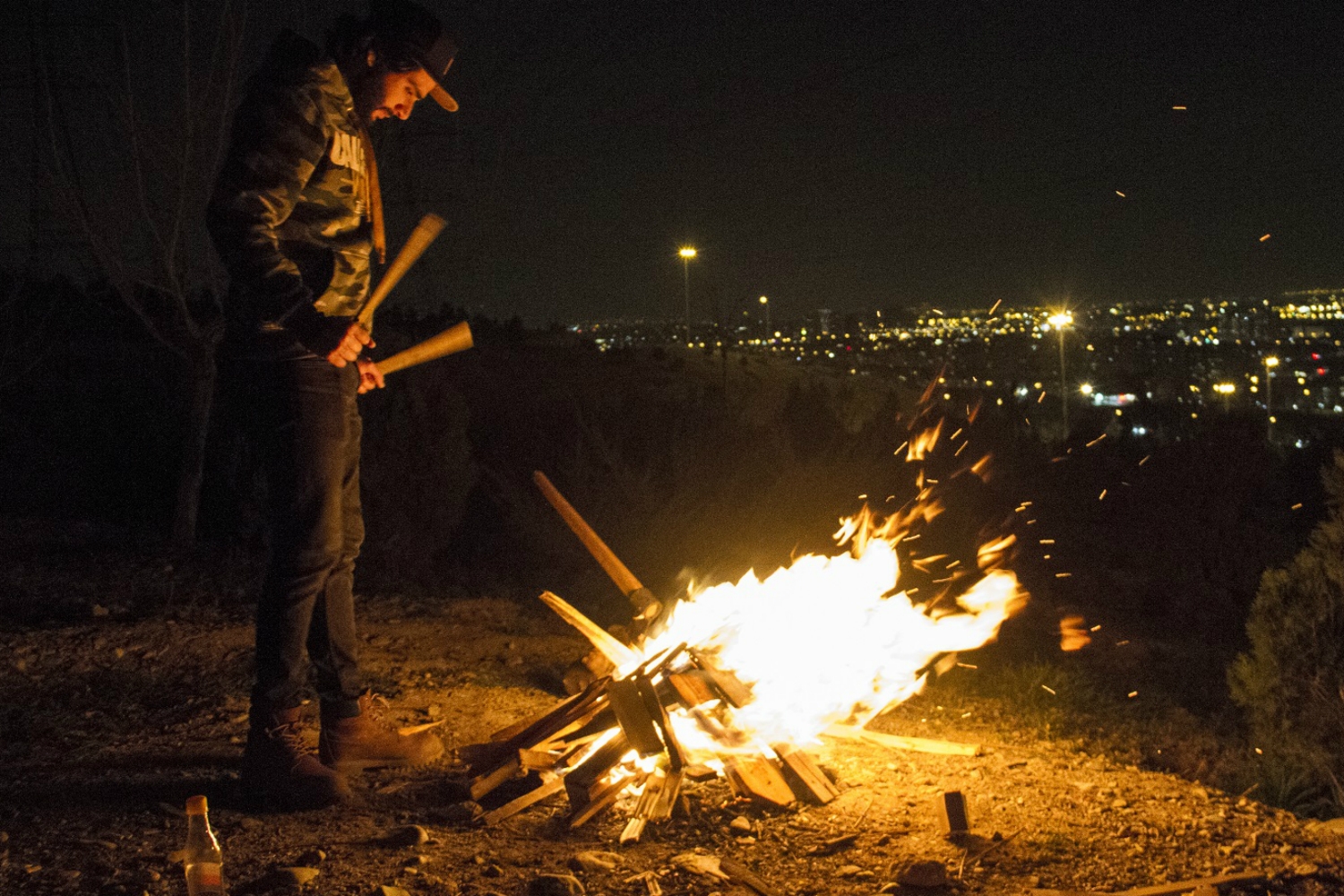
“We come here maybe every 10 days,” says Reza, a university student tending the fire, who asked that his real name not be used. “This is all for free. You can hang out with your friends, have fun and eat campfire baked potato. I prefer going to Chitgar though, it’s less crowded over there and we are happier when we are away from the people." (MEE)
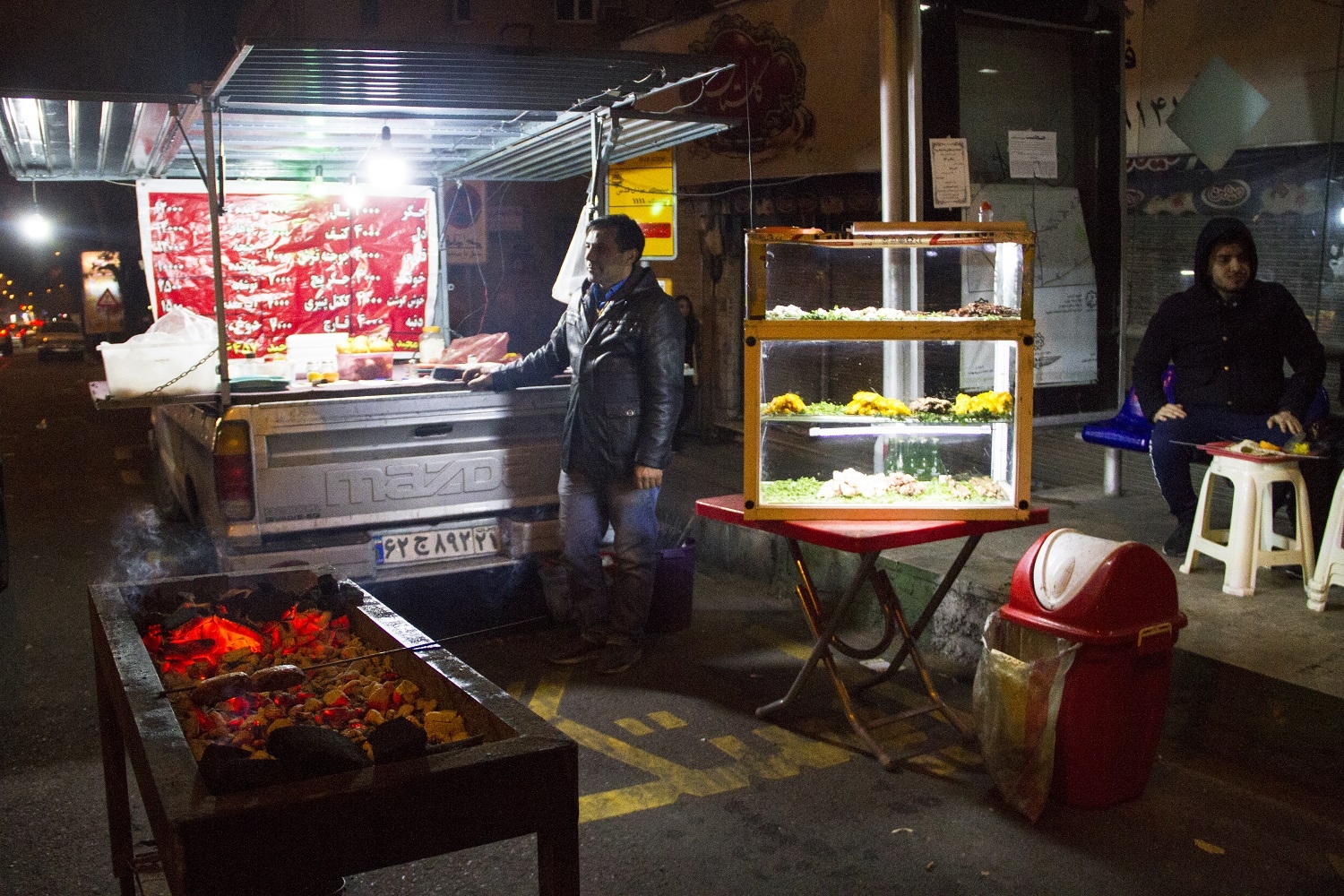
Wherever they are, the crowds feast on street food, which is increasing in popularity: US sanctions mean food prices in Iran have gone up by around 50 percent. All a trader needs is a table, a stove and something to sell - no requirement for a permit or a health certificate. Some sellers can make almost 10,000,000 rial ($200 at the official exchange rate) on a crowded weekend night –almost equal to the minimum monthly wage for labourers. (MEE)
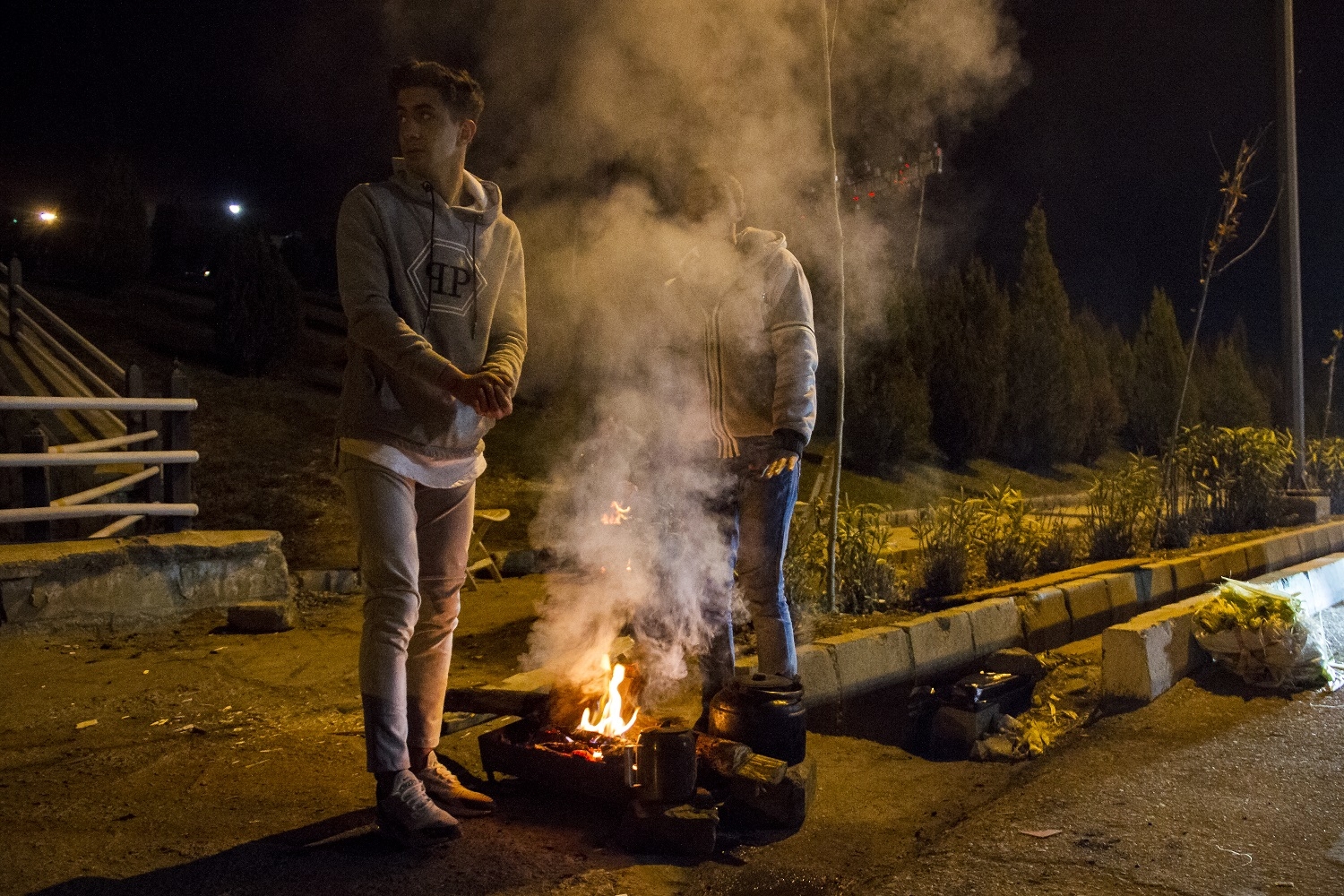
Brothers Ali and Mohammad, who are from the poorer southern districts, run a food stall by an empty road that leads to Abshar. Ali, the older of the two, says they sell ash-e reshteh, a thick soup with thin noodles, made by their mother. By day he works in a shop but “the store has very few clients and our salary has fallen”. (MEE)
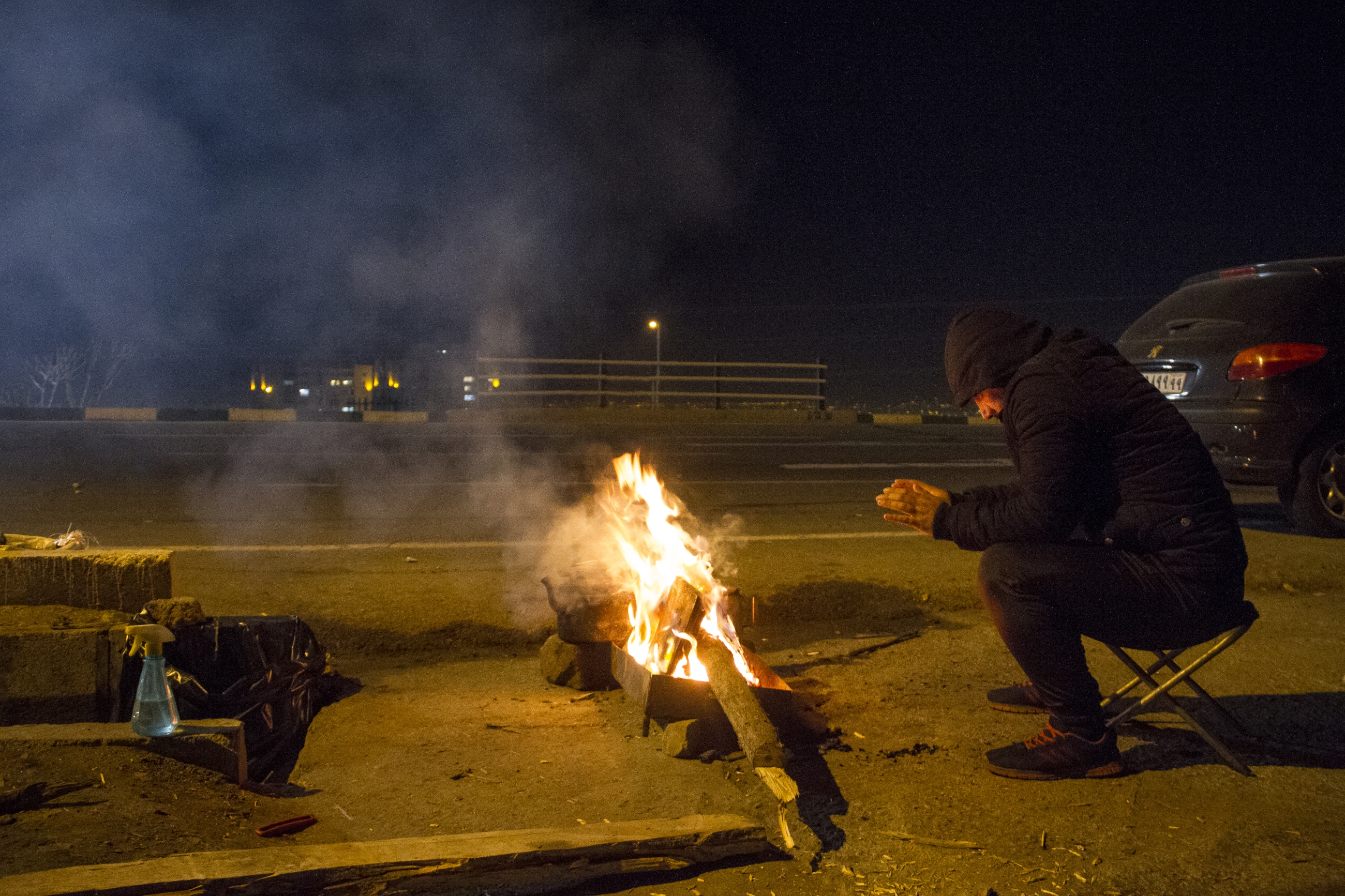
The brothers' stall has no tables and consists only of a picnic gas stove to warm the pot, a kettle for tea and a fire burning away inside a metal tub that is usually used for mixing concrete. Mohammad says that their prices are low – about 95 cents, around half that of a modest restaurant. “My mum’s ash-e reshteh tastes great because it’s homemade," he adds. (MEE)
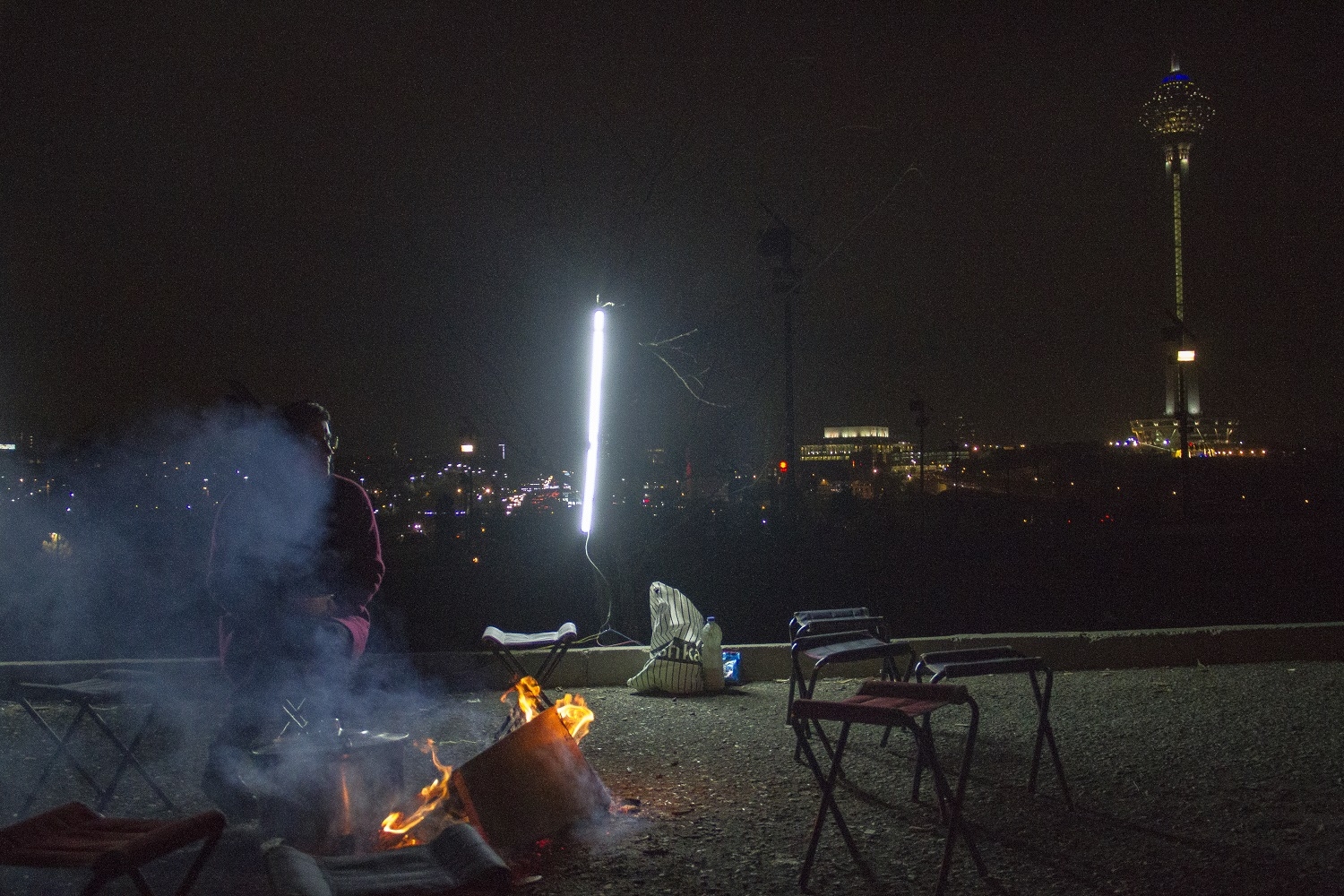
Another popular draw is Pardisan Park in north-west Tehran, close to the upscale Shahrak-e Gharb neighbourhood: here the crowds are mostly from the west and southwest of the city. Some teens just buy a cup of tea or a bowl of homemade soup from sellers, while others use the dark to do what they want, hiding from the morality police and avoiding strict Islamic social regulations. In the background is Milad Tower, a landmark to wealth and capital in Tehran. (MEE)
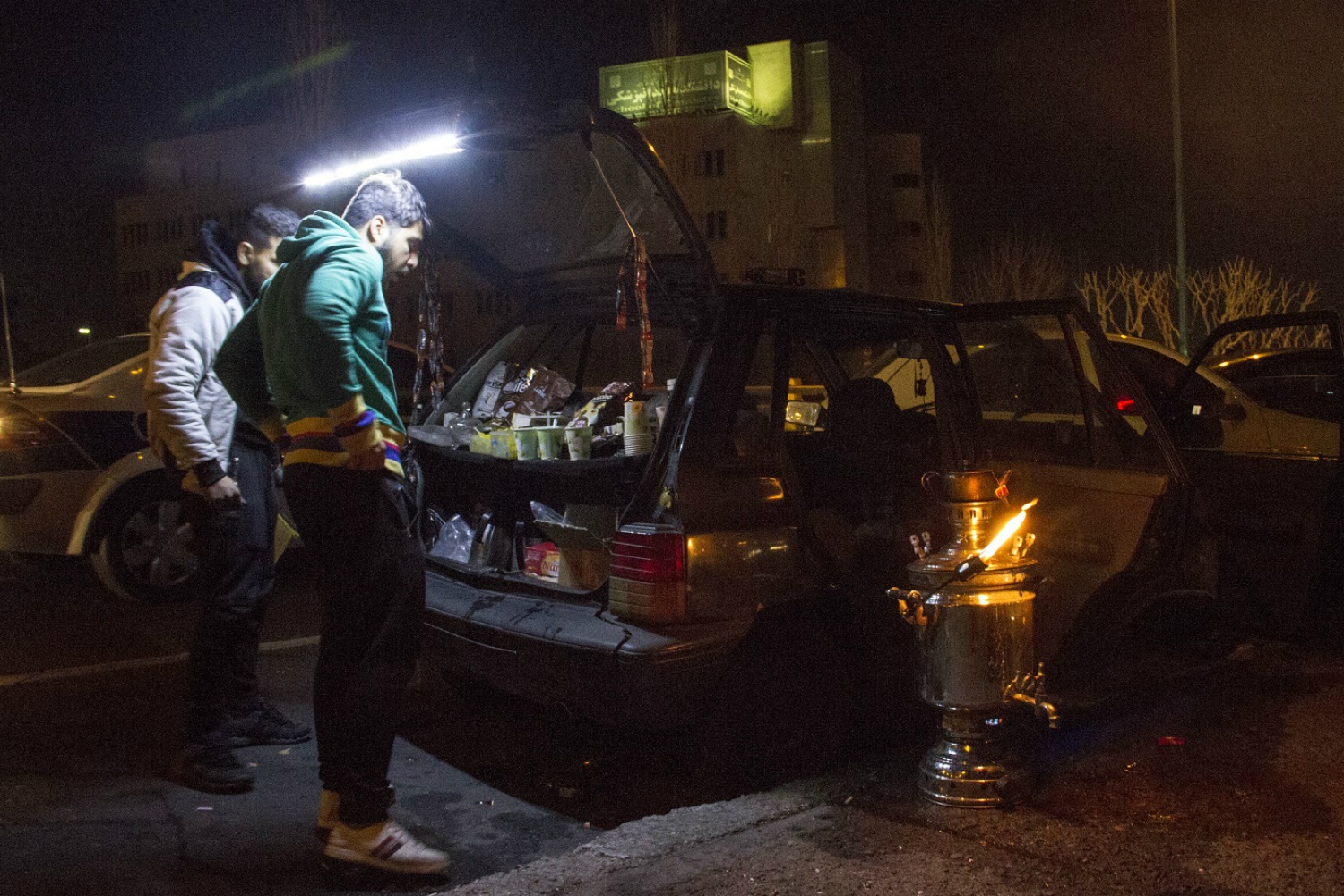
In central Tehran, a young man sells samovar tea and instant coffee from the back of his car at a quiet bridge over the Hakim Expressway. Like other street food traders in Tehran, he changes his spot constantly to attract more customers and avoid crackdowns by the municipal authorities. (MEE)
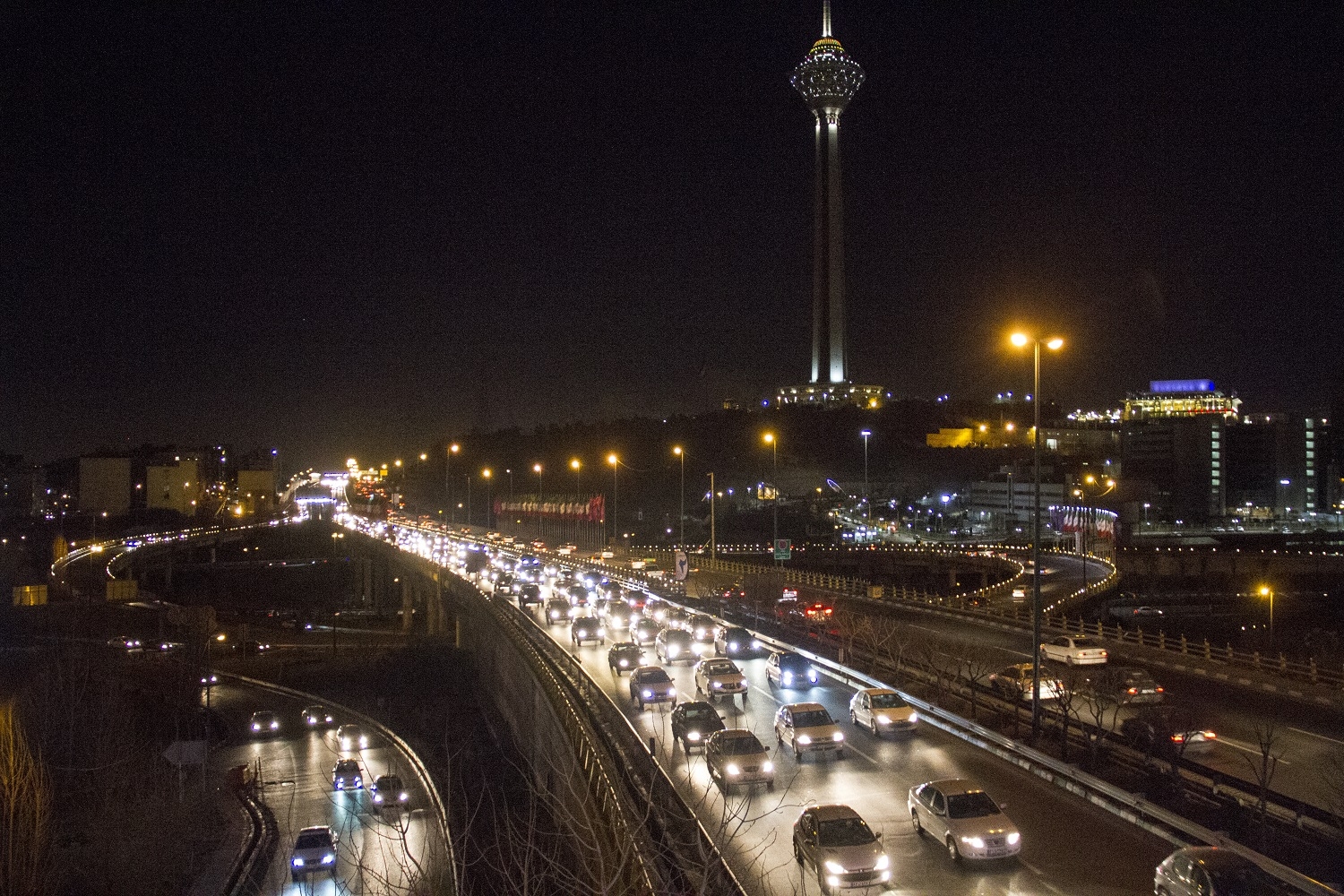
Tehran’s massive traffic jams also bring their own freedom for teenagers and twenty-somethings. Sima and Shahram (not their real names) are a young couple who study art at university and wait tables in cafes. For fun they aimlessly drive around in Shahram’s father’s car while swigging Aragh Sagi (literally translated as "doggy distillate"), a vodka-like moonshine, that sells in plastic bottles for $9.60 per litre. (MEE)
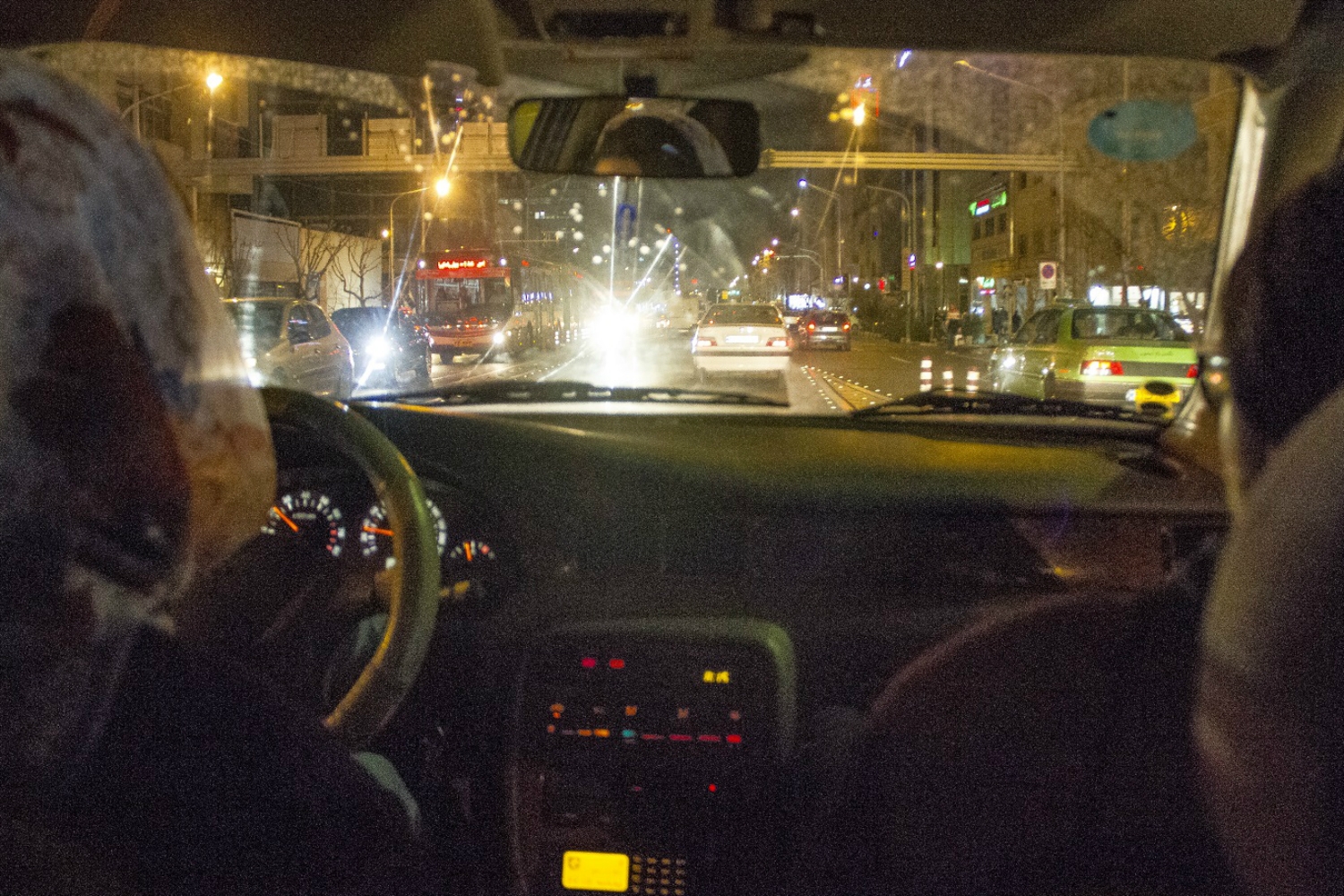
On this occasion the couple were too drunk to drive and so sat in the back. “With gas price at 19 cents per litre it’s the cheapest way to have fun,” says Shahram. “And Tehran highways are the best place to stay away from the eyes of the police.” Sima adds: “If you don’t have money, this city doesn’t have much to entertain you. It’s not only the current economic crisis or new sanctions. Since I recall, Tehran has always been like this.” (MEE)
Middle East Eye propose une couverture et une analyse indépendantes et incomparables du Moyen-Orient, de l’Afrique du Nord et d’autres régions du monde. Pour en savoir plus sur la reprise de ce contenu et les frais qui s’appliquent, veuillez remplir ce formulaire [en anglais]. Pour en savoir plus sur MEE, cliquez ici [en anglais].



